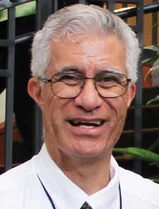A closer look at Pacific Islander student absenteeism
Equity Corner
February 10, 2020

As a student attendance practitioner for more than 30 years, I have awaited the inclusion of student attendance in the state’s accountability system. On the California School Dashboard, the chronic absenteeism rate for students in grades K-8 is 10.1 percent.
The Dashboard provides data on student subgroups that are often overlooked due to a lack of data. The Pacific Islander subgroup consists of students such as Native Hawaiians, the Chamorros from Guam and the Northern Marianas Islands, the Marshallese, Samoans, and Tongans among others. The state’s 18,842 K-8 Pacific Islander students have a chronic absenteeism rate of 18.8 percent, placing them in the “orange” category along with American Indian students, students with disabilities and others.
Pacific Islanders suffer from diabetes, obesity and heart disease, and one out of two adults are Type 2 diabetic. Students often remain at home to care for ill adults. Educating the community on nutrition and fitness is a key support for students. School districts can bring health professionals to their districts.
During times of bereavement, Pacific Islander families often participate in funeral-related activities that can be out-of-state or local, and which last one to two weeks or longer. Arranging for homework in advance, or even considering short-term independent study will help a student’s academic success.
Finding ways to engage students and help them feel connected to school is an ongoing challenge. Pacific Islanders are often viewed as “athletes,” yet there are many who are not solely interested in athletics. Remind students that a college degree is an important contingency plan in the event that a professional athletic career does not materialize. Many Pacific Islander students receive a “tuition-free college education,” yet do not complete their degrees. Only 18 percent of Pacific Islander adults hold a bachelor’s degree, making for few adult role-models in higher education. Encourage students to explore other areas of interest. Expanded learning is an effective way to introduce students to a variety of activities.
Trusting relationships are key in supporting students and parents. The Long Beach Unified School District conducts regular meetings called the Pacific Islander Education Voyage with the superintendent and parents, where they receive information on district programs and services. School districts should consider participating in Pacific Islander cultural festivals and faith-based events which are good venues to share the importance of good attendance.
The Dashboard brought attention to the issue of chronic absenteeism for Pacific Islander students and helped reveal challenges which were not systematically discussed. I am often asked, “What happened to you?” as I am one of a few school administrators from the Pacific Islander community in K-12 education. I am grateful for my teachers who helped a quiet Samoan to be successful. None of them were Pacific Islanders. When I became a teacher and eventually an administrator, I never met a Pacific Islander colleague, yet many supported me. More than 80 percent of Pacific Islanders will not complete college, and I share my story often with students. I am reminded of the legacy of my parents who came to America from the U.S. territory of American Samoa. They began their education “again” as their degrees were not recognized. If they could earn their degrees twice, I could do so once. My entire family holds a college degree. The Dashboard is a useful tool to truly reach out to every subgroup, large or small, and determine how to best support each one, to assure equity for all.
Victor C. Thompson, Ed.D. is the Director of Student Support Services for the Los Angeles County Office of Education and the ACSA State Board Liaison for the ACSA Equity Committee.


